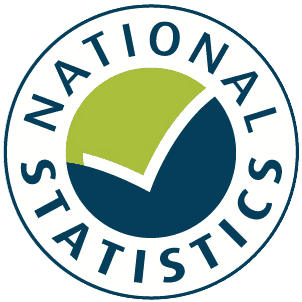Vocational and other qualifications quarterly: July to September 2018
Statistics on vocational and other qualifications (excluding GCSEs, GCEs and Diploma and its components).
Applies to England
Documents
Details
Main trends
The main trends for quarter 3 2018 are given below:
-
Nearly 2.3 million certificates were awarded in 2018 Q3, a decrease of 9.3% on the same quarter of 2017.
- The decrease is mostly due to a decrease in the number of certificates in QCF, Other General Qualifications, Functional Skills, Vocationally-Related Qualifications and Entry level qualifications. There has been increases in the number of certificates in Other Vocational Qualifications and English for Speakers of Other Languages.
- The decline in the number of certificates in QCF, Other General Qualifications, Vocationally-Related Qualifications and Entry level qualifications can be partially attributed to Ofqual’s decision to revise the list of available qualification types. The increase in the number of certificates in Other Vocational Qualifications and English for Speakers of Other Languages can also be attributed to this revision.
- The general decline in the number of certificates over the previous 12 month period may be caused by a tightening in the availability of funding. This is notable at Level 1/2 and Level 2 qualifications. Some of this decline has been offset somewhat by the increase in the number of certificates in Level 3 qualifications. This change could be driven by changes in the performance tables as Applied General qualifications (Level 3) grow in popularity.
- The decline in the number of certificates in Functional Skills is likely due to the changes in funding rules by the Education and Skills Funding Agency and revised guidance from DfE that post 16 students who have a grade D/grade 3 in English or mathematics must now be entered for GCSE resits in those subjects rather than Functional Skills.
- The sector subject areas with a notable decrease in the number of certificates were Science and Mathematics, Languages, Literature and Culture, Preparation for Life and Work, Business, Administration and Law, Information and Communication Technology, Arts Media and Publishing and History, Philosophy and Theology. The decline in the number of certificates in Science and Mathematics is due to the drop in the number of certificates in a number of Level 1/2 and Level 2 qualifications compared to Q3 in 2017, most likely due to their removal from the performance tables.
- The qualification with the highest number of certificates this quarter was QA Level 3 Award in Emergency First Aid at Work (RQF), followed by Pearson Edexcel Functional Skills qualification in Mathematics at Entry 3 and Pearson BTEC Level 1/Level 2 First Award in Sport.
- A number of qualifications having a high number of certificates this quarter are new Level 3 qualifications, which were not available to certificate in the same quarter in the previous year. Many of these are first aid qualifications. This is due to the First Aid Awarding Organisations Forum (FAAOF) review of the Emergency First Aid at Work qualification and that these should be relevelled from Level 2 to Level 3 in England.
Geographical coverage
The data cover regulated qualifications in England.
Datasets
The dataset used to produce this release are available separately.
Statistics collection
All our published vocational and other qualifications publications are available at a single collection page.
User feedback
We welcome your feedback on our publications. Should you have any comments on this statistical release and how to improve it to meet your needs please contact us at statistics@ofqual.gov.uk.
